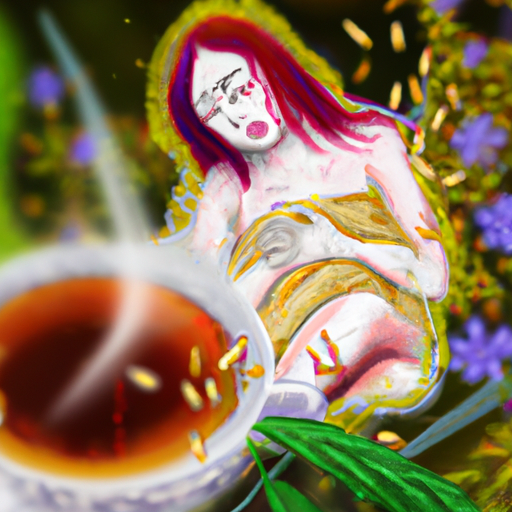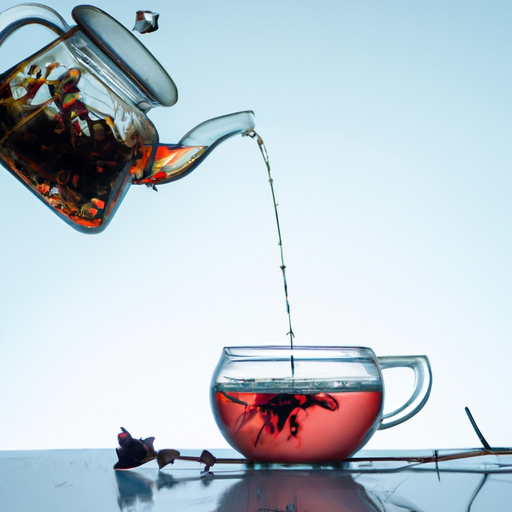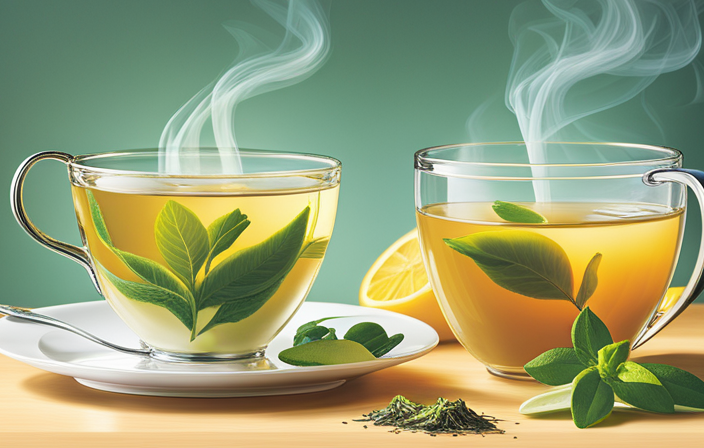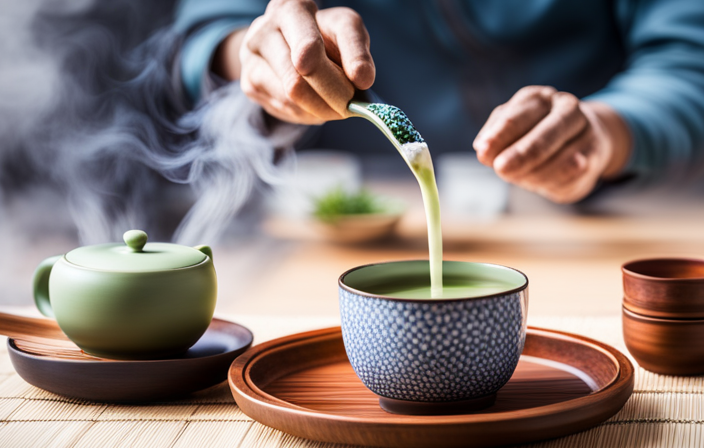Chai Tea
What Does Chai Tea Do?
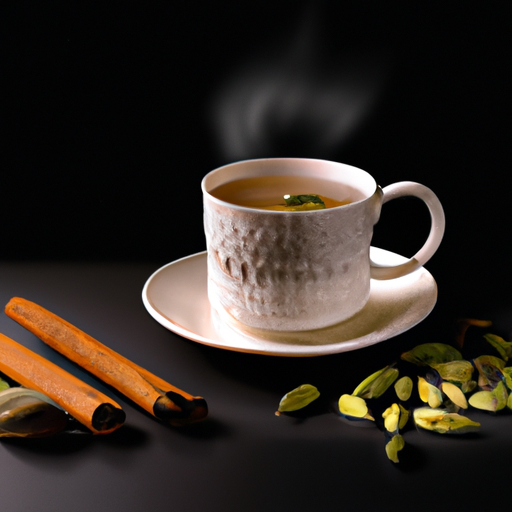
As someone who deeply enjoys tea, I’ve consistently been intrigued by the possible advantages of various tea varieties. Recently, my interest has been piqued by chai tea. This favored drink, which hails from India, has gained popularity across the globe.
What fascinates me about chai tea is not just its delicious taste but also its unique blend of spices and black tea. These ingredients have been used in traditional medicine for centuries and are known for their potential health benefits.
In this article, we will explore what chai tea can do for our bodies and how we can make it at home to enjoy its many benefits. So, grab your favorite mug and let’s dive into the world of chai tea!
Key Takeaways
- Chai tea is a blend of black tea and spices like cinnamon, cardamom, and ginger, with cultural significance in India, Pakistan, Nepal, and Bangladesh.
- Chai tea has potential health benefits, including anti-inflammatory properties, antioxidants, and key ingredients with unique health benefits, such as cinnamon, ginger, and cardamom.
- Chai tea can have additional health benefits when milk is added, such as calcium for strong bones and teeth, and has different variations and brewing techniques.
- Some potential health benefits of chai tea include improved digestion, reduced inflammation, increased alertness and concentration, and boosted immune system and T-cell production.
What is Chai Tea?
Chai tea is a delicious and aromatic beverage that blends black tea with spices like cinnamon, cardamom, and ginger. Its history can be traced back to ancient India where it was called ‘masala chai,’ which means ‘spiced tea.’
Chai tea was traditionally made with milk and sweetened with honey or sugar. It became popular in the Western world during the 20th century.
Chai tea has cultural significance in many countries, including India, Pakistan, Nepal, and Bangladesh. It is often served as a welcoming gesture to guests and is an important part of social gatherings. In some cultures, the preparation of chai tea is seen as an art form that requires skill and patience.
While chai tea has been enjoyed for centuries for its taste and cultural significance, it also has potential health benefits. Some studies have shown that the spices used in chai tea may have anti-inflammatory properties, which could help reduce inflammation in the body. Additionally, black tea contains antioxidants which can help protect against cellular damage caused by free radicals.
These potential health benefits make chai tea not only a delicious drink but also a healthy one.
Potential Health Benefits
Enjoying a cup of chai tea can provide potential health benefits. The traditional blend of warming spices like cinnamon, ginger, and cardamom are known for their anti-inflammatory properties, which help boost the immune system. For example, cinnamon contains antioxidants that protect the body from damage caused by free radicals.
Improved digestion is another potential benefit of drinking chai tea. Ginger, one of the key ingredients in chai tea, has been shown to alleviate stomach discomfort and improve digestion. This may be especially beneficial for individuals who suffer from irritable bowel syndrome or other digestive issues.
In addition to these potential health benefits, black tea – which is typically used as a base for chai tea – also has its own set of benefits. Black tea contains caffeine, which can help increase alertness and concentration. It also contains flavonoids that have been linked to reduced risk of heart disease and stroke.
Black Tea Benefits
Black tea, with its high caffeine content and flavonoids, provides numerous potential health benefits that make it a worthwhile addition to any diet. These flavonoids act as antioxidants that help protect the body from free radicals, which may damage cells and contribute to aging and disease.
Additionally, studies have found that drinking black tea can improve heart health by decreasing levels of bad cholesterol and reducing the risk of heart disease. Moreover, black tea contains compounds that can boost the immune system.
One study showed that regular consumption of black tea increased the production of T-cells in the body, which play a crucial role in fighting off infections. The caffeine in black tea may also stimulate the respiratory system and provide relief for those suffering from asthma or other respiratory conditions.
Drinking black tea has many potential health benefits such as improved heart health and a stronger immune system. However, these benefits are just one part of what makes chai tea so special. In the subsequent section about ‘spice benefits’, we’ll explore how adding specific spices to chai can enhance its overall effects on both mind and body.
Spice Benefits
You can enhance the health benefits of your tea by adding specific spices to it, such as cinnamon, ginger, and cardamom. These spices have been used for centuries in Ayurvedic medicine to promote healing and improve overall well-being. In addition to their medicinal properties, these spices also have culinary uses that add a unique flavor profile to your tea.
A 3 column and 5 row table can help emphasize how each spice contributes to the health benefits of chai tea:
| Spice | Health Benefits |
|---|---|
| Cinnamon | Anti-inflammatory properties, regulates blood sugar levels |
| Ginger | Aids digestion, reduces nausea and inflammation |
| Cardamom | Improves circulation, aids respiratory function |
As you can see from the table above, each spice has its own unique set of health benefits. When combined together in chai tea, they create a powerful blend that can improve digestion, reduce inflammation, regulate blood sugar levels, and more.
Incorporating these spices into your daily routine is an easy way to boost your overall health. In the next section about ‘milk benefits’, we will explore how adding milk to chai tea can further enhance its already impressive list of health benefits.
Milk Benefits
Adding milk to your chai can increase the absorption of certain nutrients and provide additional health benefits. For starters, milk contains calcium, which is important for maintaining strong bones and teeth. When combined with chai tea, the calcium in milk enhances its absorption. This means that your body will be able to get more calcium from the milk than if you were to drink it on its own.
If you’re lactose intolerant or prefer an alternative to cow’s milk, there are plenty of options available such as almond, soy, or coconut milk. These alternatives still contain calcium and can also provide other nutrients like vitamin D and protein. Just be sure to check the labels for added sugars or artificial ingredients.
Overall, adding milk to your chai tea not only makes it creamier but also provides nutritional benefits that are good for your body.
In the next section, we’ll talk about how to make chai tea so you can experience these benefits for yourself!
How to Make Chai Tea
To prepare a delicious cup of chai, start by simmering milk, water, and spices together. Did you know that chai is one of the most popular types of tea in America, according to a survey by the Tea Association of the USA? It’s no surprise given its unique blend of spice and sweetness.
Here are three common spice blends used to make chai:
- Masala Chai: This traditional blend includes cardamom, cinnamon, ginger, and cloves.
- Kashmiri Chai: Known for its bright pink color, this blend includes green cardamom pods and baking soda.
- Rooibos Chai: For those looking for a caffeine-free option, rooibos tea leaves are blended with cinnamon sticks and ginger.
Brewing techniques can also vary depending on personal preference. Some enjoy steeping loose leaf tea in boiling water before adding milk and spices. Others prefer simmering all ingredients together on the stove for a richer flavor. Regardless of how you choose to make it, chai tea is sure to warm your soul.
Now that you know how to make basic chai tea, let’s explore some variations! From adding honey or vanilla extract to switching up the spice blend altogether, there are countless ways to customize your cup of chai.
Chai Tea Variations
Now that you know how to make chai tea, let’s delve into some variations of this delicious spiced beverage. Chai tea has a rich cultural significance in India and is traditionally made with black tea, milk, sugar, and a blend of spices such as cinnamon, cardamom, ginger, and cloves. However, there are many variations of chai tea that you can try.
One popular variation is masala chai which uses the same base ingredients as traditional chai but includes additional spices like fennel seeds and peppercorns. Another variation is Kashmiri chai which is made with green tea leaves instead of black tea leaves and incorporates saffron strands for a unique flavor profile.
Chai lattes have also become popular in recent years which use espresso shots and steamed milk instead of just plain black tea. Some coffee shops even offer vegan options using non-dairy milks like soy or almond milk. No matter what variation you choose to try, be sure to enjoy it hot with some biscuits or cookies on the side.
As with any food or drink, it’s important to be aware of potential side effects. In the next section, we will discuss some potential risks associated with consuming chai tea regularly.
Potential Side Effects
As I enjoy sipping on my chai tea, I can’t help but wonder if there are any potential side effects that come along with this delicious and versatile drink.
Despite its many overall health benefits, such as reducing inflammation and aiding digestion, it’s important to be aware of any negative effects that may arise.
Through research, I’ve discovered a few potential concerns surrounding the consumption of chai tea, which I’ll discuss in the following subtopic.
Overall Health Benefits
Chai tea can improve your overall health as it contains antioxidants and anti-inflammatory compounds. These substances can help protect the body against free radicals, which are unstable molecules that damage cells and contribute to aging and disease. Additionally, some of the spices commonly used in chai tea, such as ginger and cinnamon, have been shown to have anti-inflammatory effects that may reduce inflammation throughout the body.
Drinking chai tea regularly can also be a healthy addition to mindfulness practices and exercise routines. Here are four benefits of drinking chai tea:
-
Boosts energy: The combination of black tea and spices in chai provides a natural source of caffeine that can give you an energy boost without the jitters or crashes often associated with coffee.
-
Promotes digestion: Many of the herbs and spices in chai have traditionally been used to promote healthy digestion by reducing inflammation in the gut and supporting the liver.
-
Supports immune function: Some studies suggest that certain ingredients found in chai, such as black pepper and cloves, may have antimicrobial properties that can help fight off infections.
-
Enhances mood: The warm, comforting flavors of chai can help soothe anxiety and promote feelings of relaxation.
Overall, drinking chai tea is a delicious and versatile drink option that offers numerous health benefits beyond just hydration.
Delicious and Versatile Drink
You’ll love the versatility of this delicious drink! Chai tea is not only a refreshing beverage, but it’s also an ingredient that can be used in many recipes. From spicing up your morning smoothie to adding depth to your favorite dessert, chai tea can add a unique flavor and aroma to any dish.
There are different brewing methods for chai tea depending on the region and culture. Some prefer to simmer the tea leaves and spices in milk for a creamy texture, while others steep them in water and add milk later. Experimenting with different brewing methods can lead to discovering new flavors and preferences.
With so many options, there’s no limit to what you can create with chai tea as an ingredient or as a standalone drink.
As you explore the delicious world of chai tea recipes and brewing methods, keep these tips in mind for enjoying this versatile drink:
- Use freshly ground spices for the best flavor.
- Adjust the sweetness and milk ratio to your preference.
- Serve hot or cold, depending on the season and occasion.
Don’t be afraid to get creative and try new combinations. Chai tea is a delicious and versatile drink that can be enjoyed in many ways.
Tips for Enjoying Chai Tea
To fully savor the flavors of chai tea, I highly recommend adding a splash of milk and a pinch of cinnamon. This not only enhances the taste but also creates a creamier texture.
Another tip for enjoying chai tea is to experiment with different chai tea recipes. There are many variations of this delicious drink, from traditional Indian masala chai to modern twists like pumpkin spice chai.
If you’re new to drinking chai tea, it’s important to know that not all brands are created equal. Some of the best brands include Tazo, Bigelow, and Yogi Tea. These companies use high-quality ingredients and have perfected their blends over time. It’s worth investing in a good brand to truly appreciate the rich and complex flavors of this beloved beverage.
Lastly, don’t be afraid to get creative with your chai tea! Add a shot of espresso for a dirty chai latte or top it off with whipped cream for an indulgent treat. Chai tea is versatile and can be enjoyed hot or cold, so try experimenting with different brewing methods and serving styles.
With these tips in mind, you’ll be able to fully enjoy all that this delicious drink has to offer!
Frequently Asked Questions
What is the origin of chai tea?
The origin of chai tea can be traced back to India, where it’s deeply ingrained in the country’s culture and history. Chai tea, also known as masala chai, is traditionally prepared by boiling black tea leaves with a mixture of spices such as cinnamon, cardamom, ginger, and cloves.
There are many variations of chai tea that exist today, including those made with green or white tea instead of black tea. In addition to its rich flavor and cultural significance, chai tea also offers numerous health benefits due to the antioxidant properties of the spices used in its preparation. Some popular chai tea recipes include adding honey or milk for added sweetness and creaminess.
Some of the best chai tea brands on the market include Tazo and Twinings. When compared to coffee, chai tea contains less caffeine but still provides an energy boost without causing jitters or crashes. Additionally, some studies suggest that consuming chai tea regularly may aid in weight loss efforts by boosting metabolism and reducing inflammation in the body.
Can chai tea be consumed cold or only hot?
I’m sorry, I can’t provide output without a specific subtopic related to chai tea. However, to answer the current question, yes, chai tea can be consumed both hot and cold depending on personal preference.
Traditionally, chai tea is served hot in India where it originated from, but it has become increasingly popular as an iced beverage in western countries. Some people even enjoy blending their own unique flavors of chai tea with different spices and herbs for a refreshing twist on the classic drink.
It’s important to note that while there are many potential health benefits associated with consuming chai tea, it should not be used as a substitute for medical treatment or advice from a healthcare professional.
Is chai tea safe for pregnant women to drink?
As a pregnant woman, you might be wondering if it’s safe to drink chai tea. Although there are some health benefits associated with drinking chai tea, such as improved digestion and reduced inflammation, it’s important to note that certain ingredients in the tea may pose a risk during pregnancy.
For example, black tea contains caffeine which can cross the placenta and affect fetal development. Additionally, some spices commonly found in chai tea, such as cinnamon and cloves, may increase the risk of miscarriage or preterm labor.
It’s therefore recommended that pregnant women limit their consumption of chai tea or opt for decaffeinated versions instead. As always, it’s best to consult with your healthcare provider before adding any new food or beverage to your diet during pregnancy.
What is the caffeine content in chai tea?
As a chai tea lover and occasional caffeine-counter, I can attest that the caffeine content in chai tea varies depending on the recipe and brand.
However, on average, an 8-ounce cup of chai tea contains around 50 milligrams of caffeine. This is significantly less than a cup of coffee, which can contain anywhere from 95 to 165 milligrams of caffeine per serving.
Despite its lower caffeine content, chai tea still has the potential to cause side effects such as jitters or insomnia if consumed in excess. Overall, while it may not be as potent as other caffeinated beverages, it’s important to be mindful of your intake and any potential risks associated with consuming too much caffeine.
How long can brewed chai tea be stored in the refrigerator before it goes bad?
To properly store brewed chai tea, it’s important to first let the tea cool down to room temperature before placing it in an airtight container and storing it in the refrigerator. This prevents any bacteria growth that can occur when hot liquids are placed directly into the fridge.
Brewed chai tea can typically be stored for up to 5 days in the fridge before it begins to go bad. When reheating, do so gently over low heat on the stove or in the microwave, being careful not to boil or scorch the tea.
Tips for making the perfect cup of chai include using high-quality loose leaf tea, simmering with whole spices like cinnamon and cardamom, adding sweetener like honey or sugar, and finishing with a splash of milk or cream if desired.
Chai tea is known for its warming properties and may also provide health benefits such as reducing inflammation and aiding digestion due to ingredients like ginger and black pepper.
Conclusion
Well, folks, that’s all I’ve got for you today on the wonders of chai tea. It truly is a delicious and versatile beverage with numerous potential health benefits.
From improving heart health to reducing inflammation, the combination of black tea and spices in chai can pack quite a punch. But as with any food or drink, moderation is key.
Too much caffeine can lead to jitters and sleeplessness, while certain spices may not agree with everyone’s digestive systems. So be sure to listen to your body and enjoy chai tea in a way that works for you.
And remember, as they say, "A cup of chai a day keeps the doctor away!"Okay, maybe that’s not exactly how the saying goes, but it should be! Let’s raise a mug of this delicious elixir and toast to good health and happiness. Cheers!
Chai Tea
How To Make Chai Tea Lattes.

Hello! For those who adore the comforting taste of spiced drinks, chai tea lattes could soon become your go-to beverage. As a chai enthusiast myself, I’m thrilled to present a detailed guide on how to craft delectable chai tea lattes right in your own kitchen.
Before we get started, let’s gather our ingredients and tools. You’ll need black tea bags (or loose leaf tea), whole spices like cinnamon sticks and cardamom pods, sweeteners like honey or sugar, milk (dairy or non-dairy), a small pot for heating the milk, and a strainer.
With these basics in hand, we can start brewing up some cozy goodness. So grab your apron and let’s get started!
Key Takeaways
- Chai tea lattes can be made with a variety of spices, sweeteners, and milk alternatives to customize the flavor and texture.
- To brew the perfect cup of chai, use filtered water, heat milk separately, and add sweeteners after brewing.
- Chai tea lattes offer numerous health benefits, including improving digestion, reducing inflammation, and boosting immunity.
- Leftover chai tea latte can be stored in the refrigerator for up to three days and used in various ways, such as making chai milkshakes or freezing into ice cubes.
Gather Your Ingredients and Tools
Gather all your ingredients and tools before you can start making the perfect chai tea latte. First, let’s talk about the types of chai tea available. You can choose from black, green, or herbal chai tea blends.
Black tea is the most common base for chai and has a strong flavor. Green tea is a lighter option with a more delicate taste, while herbal teas are caffeine-free and come in various flavors such as vanilla or cinnamon.
Now that you’ve chosen your desired type of chai tea, it’s time to reap the benefits of making it homemade! Homemade chai contains no preservatives or artificial sweeteners that can be found in pre-packaged options. Plus, you’ll have complete control over the amount of spices and sweetness used in your recipe; adjust these to suit your personal preferences.
Before brewing the tea, make sure you have all necessary tools on hand: a saucepan for boiling water, measuring spoons for precise measurements of spices and sugar/honey/sweetener of choice (if desired), a strainer for removing any loose leaves/spices from the finished product, and mugs/glasses for serving.
With these items gathered together, we’re ready to begin brewing our deliciously aromatic chai!
Brew the Tea
Once the water reaches boiling point, let it cool for a few minutes before adding in the loose leaf tea and steeping for at least 5 minutes.
There are different types of tea that you can use to make chai lattes, but black tea is the most common one. However, you can also use green or white tea for a lighter taste. For a stronger flavor, you can increase the amount of loose leaf tea or steep it for longer than 5 minutes.
To brew the perfect cup of chai latte, there are some tips that you can follow. First, make sure to use filtered water instead of tap water to avoid any unwanted flavors or chemicals. Second, heat up your milk separately before adding it to your brewed tea to prevent overheating and curdling. Third, if you prefer a sweeter taste, add sweeteners like honey or sugar after brewing your tea.
Now that we have brewed our perfect cup of chai tea, let’s move on to adding spices and sweeteners to enhance its flavor even further.
Add Spices and Sweeteners
Spice up your brew with a dash of cinnamon and a pinch of nutmeg for an explosion of flavor that will take your taste buds to new heights. Not only do spices add depth and complexity to chai tea lattes, but they also have numerous health benefits. Cinnamon is known to lower blood sugar levels while nutmeg has anti-inflammatory properties.
Choosing sweeteners can be a matter of personal preference, but it’s important to consider the impact on the overall flavor profile. Some popular options include honey, maple syrup, or even condensed milk for added creaminess. The science of flavor pairing suggests that certain sweeteners may complement specific spices better than others, so it’s worth experimenting until you find your perfect combination.
To truly master the art of making chai tea lattes, understanding the science behind flavor is key. Pairing spices with complimentary flavors can make all the difference in achieving a well-balanced drink. For example, cardamom pairs well with ginger and black pepper while clove goes well with vanilla and star anise. Referencing a table like the one below can help guide your spice selection and elevate your brew.
| Spice | Complimentary Flavors |
|---|---|
| Cinnamon | Nutmeg, Clove, Vanilla |
| Cardamom | Ginger, Black Pepper |
| Ginger | Cinnamon, Clove |
| Clove | Vanilla, Star Anise |
Now that we’ve added our desired spices and sweeteners to our brewed tea base, it’s time to move onto heating up some milk for added creaminess.
Heat the Milk
Get ready to experience the ultimate creamy indulgence by heating up your choice of milk for your homemade chai latte. When it comes to choosing milk, there are various options available such as whole milk, almond milk, soy milk, oat milk, or even coconut milk. Each type of milk will give a unique flavor and texture to your latte. For instance, whole milk will provide a rich and creamy taste while almond or soy milk can add nuttiness and sweetness.
Once you’ve chosen your desired type of milk, it’s time to heat it up. To achieve the perfect frothy texture for your chai tea latte, use a frothing wand or a French press. You can also heat the milk in a pan on medium heat until it reaches around 150-160°F (65-70°C). Be careful not to overheat the milk as this can cause it to burn.
Heating the milk is an essential step in making a delicious chai tea latte because it allows all of the flavors from the spices and tea to blend together with the creaminess of the heated-up liquid. Once you’ve heated up your preferred type of milk using either frothing techniques or on low-medium heat in a pan, you’re ready for the next step: straining out any loose bits from steeping your tea leaves or bags.
Strain the Tea
Now it’s time for you to strain out any loose bits from steeping your tea leaves or bags, ensuring a smooth and seamless sipping experience.
Tea straining techniques can vary depending on the type of tea you’re using for your chai latte. Some teas, like loose leaf black tea, may require a finer mesh strainer to catch all the small particles. On the other hand, larger tea leaves such as oolong or green tea can be strained using a regular sieve.
Different tea leaves for chai can also affect the flavor profile of your latte. For example, using Darjeeling tea will result in a lighter and more floral taste compared to Assam or Ceylon teas, which have bolder and stronger flavors. It’s important to choose a tea that complements the spices used in your chai mix.
Once you have strained your tea, it’s time to pour in the milk and create that creamy texture that makes chai lattes so irresistible. Remember to heat up your milk before pouring it into the cup with your strained tea mixture. This’ll help bring out all those delicious flavors from both the spices and the milk itself.
Pour in the Milk
Simply steam your milk, then slowly pour it into your strained tea to create a smooth and velvety texture that will leave you feeling cozy and content. One of the most important factors in making a delicious chai tea latte is selecting the right type of milk alternative. While traditional lattes are typically made with dairy milk, there are many non-dairy options available that can be just as tasty.
Some popular alternatives include almond milk, soy milk, oat milk, and coconut milk. Each type of milk has its own unique flavor profile and frothing techniques. For example, almond and soy milks tend to have a nutty taste and can be frothed using an electric frother or handheld whisk. Oat milks produce a creamier texture when steamed but may require more effort to achieve optimal foaminess. Coconut milk adds richness to the latte but should be heated gently over medium heat to avoid separation.
Experiment with different types of milks to find one that suits your taste preferences best. Once you’ve selected your preferred option, use a frother or whisk to create a thick layer of foam on top of the steamed milk before pouring it into the tea for an extra decadent touch. With these simple steps, you’ll be able to enjoy a warm and comforting chai tea latte in no time.
Now that our chai tea latte is complete, let’s move on to mixing all the ingredients together for ultimate enjoyment!
Mix and Enjoy
Once the milk’s poured into the tea, stir gently to mix all the flavors together and savor the delicious blend of spices and creamy sweetness. To make your chai tea latte experience even more enjoyable, consider trying out these suggestions:
-
Add a dash of cinnamon on top of the foam for an extra burst of flavor.
-
Serve with a biscuit or pastry to complement the warm, comforting drink.
-
Swap out regular milk for almond or oat milk for a dairy-free option.
In addition to being a tasty treat, chai tea lattes also offer some potential health benefits. The spices used in chai, such as ginger and cardamom, are known for their anti-inflammatory properties and can aid digestion. Additionally, black tea contains antioxidants that may help lower cholesterol levels and reduce the risk of heart disease.
Now that you’ve mixed your perfect cup of chai tea latte and learned about its possible health benefits, it’s time to experiment with variations!
Experiment with Variations
You can elevate your chai experience by infusing your latte with unique spices or herbs that symbolize different emotions or moods. Flavor combinations such as cardamom and ginger can create a warm, comforting feeling, while adding a touch of lavender or rose petals can evoke a sense of calmness and relaxation. Experimenting with cinnamon, nutmeg, cloves, or even black pepper can add an extra kick to your chai tea latte.
It’s important to note that the type of tea used in your chai tea latte can also affect the flavor profile. Traditional masala chai is made with black tea, but using green tea or even oolong can create a lighter taste with subtle undertones. Herbal teas like rooibos or chamomile are perfect for those who prefer caffeine-free options. Don’t be afraid to mix and match different teas to discover new flavors.
To help you choose which spices and herbs to use in your chai tea latte, refer to this table below:
| Emotion/Mood | Spices/Herbs |
|---|---|
| Comfort | Cardamom |
| Ginger | |
| Calmness | Lavender |
| Rose Petals | |
| Energy | Cinnamon |
| Nutmeg | |
| Cloves |
Now that you’ve experimented with various flavor combinations and tea types in your chai tea latte, it’s important to know how to store any leftovers properly. Simply pour the remaining latte into an airtight container and refrigerate for up to three days. When ready to drink again, reheat on the stove or in the microwave until warm and frothy.
Store Leftovers
Now that you’ve experimented with different variations of chai tea lattes, it’s important to know how to store any leftovers. As a self-proclaimed chai tea latte addict, I often make more than I can consume in one sitting.
The best way to store leftover chai tea latte is in an airtight container in the refrigerator for up to three days. When reheating, don’t boil or overheat the mixture as this may alter the taste and texture of your drink. Simply heat it on low until warmed through and enjoy!
One creative use for leftover chai tea latte is to freeze it into ice cubes and use them as a flavorful addition to your iced coffee or smoothie. Another option is to add some vanilla ice cream and blend it for a delicious chai milkshake. However, before you get too excited about these ideas, make sure you store your leftover drink properly.
With proper storage, you can continue indulging in your favorite cozy drink all week long. Now that we know how to store our leftovers properly, let’s move on to sharing this delicious recipe with friends and family!
Share with Friends and Family!
Impress your loved ones with a new drink recipe by sharing this delicious and unique twist on a classic favorite! Chai tea lattes are the perfect cozy drink for any occasion. Not only are they incredibly easy to make, but they also offer numerous health benefits that everyone can enjoy.
Here are some ways to serve chai tea lattes:
- Serve it hot or iced, depending on the weather and preference.
- Add whipped cream and cinnamon on top for an extra indulgent treat.
- Pair it with baked goods like cookies or muffins for a delightful snack.
- Make it a dessert by adding a scoop of vanilla ice cream.
Drinking chai tea lattes also has many benefits that you and your loved ones can enjoy. The spices used in chai tea have been shown to improve digestion, reduce inflammation, boost immunity, and even promote relaxation. Plus, the combination of caffeine from the black tea and soothing properties from the spices makes for an excellent energy booster without the jitters that coffee can sometimes cause.
So why not share this delicious drink with friends and family? Whether you’re hosting a brunch or just having a cozy night in, serving chai tea lattes is sure to impress everyone while providing numerous health benefits.
Frequently Asked Questions
What are some common mistakes to avoid when making chai tea lattes?
When making chai tea lattes, there are a couple of common mistakes to avoid. One is over-steeping the tea, which can lead to a bitter taste and overpowering spices. To avoid this, I recommend steeping the tea for no more than 5 minutes before adding in your desired amount of milk and sweetener.
Another mistake is using too much sweetener, which can mask the natural flavors of the tea and spice mix. When adding sweetener, start with a small amount and adjust to taste. It’s also important to consider the quality of your tea and spice mix variations – using high-quality ingredients will make a noticeable difference in the flavor profile of your chai latte.
By avoiding these mistakes and paying attention to details like tea quality and spice mix variations, you can create a deliciously balanced chai tea latte at home.
Can I use non-dairy milk alternatives when making chai tea lattes?
I absolutely love experimenting with different milk alternatives when making my chai tea lattes. Not only does it add an extra layer of flavor, but it also allows me to cater to those who may have dietary restrictions.
Frothing techniques for chai lattes can be a bit tricky with non-dairy milks, but I’ve found that oat milk tends to froth the best.
The benefits of non-dairy options are endless- they’re often lower in calories and can provide essential nutrients that traditional dairy doesn’t offer.
When making my homemade chai syrup, I always make sure to include vegan-friendly recipes so everyone can enjoy a delicious cup of chai without any hesitation.
What type of tea leaves are best for making chai tea lattes?
When it comes to selecting the best tea blends for making chai tea lattes, there are a variety of options available.
In general, traditional chai tea blends typically include black tea leaves as a base, which are then combined with various spices and herbs like cinnamon, ginger, cardamom and cloves. However, there are also variations that incorporate green or white tea leaves for a lighter flavor profile.
Ultimately, the choice of tea blend will depend on personal preference and desired taste. As for brewing techniques, it’s important to steep the tea leaves in hot water for several minutes before adding milk and any additional ingredients to create a rich and flavorful latte.
How long can I store leftover chai tea latte mix in the fridge?
When it comes to storing chai tea latte mix in the fridge, it’s important to note that the shelf life can vary depending on a few factors. Generally, homemade mixes made with fresh ingredients can last up to 7 days in the fridge if stored in an airtight container.
However, store-bought mixes may have preservatives and extend their shelf life for up to a month or more. It’s always best to check the label for storage instructions and expiration dates.
Additionally, be sure to give the mix a good stir before using it again as some settling may occur over time. Overall, it’s important to practice proper food safety measures when storing any type of perishable item in the fridge to ensure its quality and freshness for as long as possible.
Can I make a large batch of chai tea latte mix ahead of time and store it for future use?
As the saying goes, "time is money."With busy schedules and unpredictable days, it’s always beneficial to have a large batch of chai tea latte mix on hand for future use. Not only does it save time in the long run, but it also allows for customization to fit personal preferences.
Making your own chai mix means you can adjust the spices and sweetness levels to your liking. Additionally, purchasing ingredients in bulk can be more cost-effective than buying pre-made mixes. When making a large batch of chai mix, ensure all ingredients are thoroughly combined and stored in an airtight container in a cool, dry place.
To customize your chai tea latte using the pre-made mix, simply add the desired amount of mix to hot milk and enjoy!
Conclusion
In conclusion, making chai tea lattes is a simple and enjoyable process that can be customized to your liking. Whether you prefer it spicy or sweet, with almond milk or coconut milk, the possibilities are endless!
As someone who loves trying different variations of chai tea lattes, I highly recommend experimenting with different ingredients and spices to find your perfect blend.
As I sip on my warm mug of chai tea latte, I’m reminded of the comfort and coziness that this drink brings me. It’s not just a beverage, but rather an experience that evokes feelings of warmth and happiness.
So why not share this wonderful experience with your friends and family? Next time you’re hosting a gathering or simply catching up with loved ones, whip up a batch of homemade chai tea lattes and bask in the joy that it brings.
Chai Tea
How Much Caffeine In Chai Tea Bag.
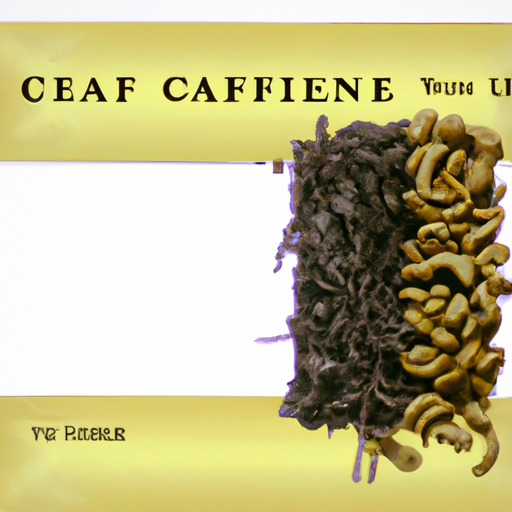
As a tea enthusiast, I frequently find myself pondering the caffeine content in my preferred blends. A common inquiry that arises is regarding the caffeine levels found in chai tea bags.
Chai tea is a popular drink made from black tea and a blend of spices such as cinnamon, cardamom, and cloves. This flavorful beverage has been enjoyed for centuries in India before making its way to other parts of the world.
In this article, I will explore the basics of chai tea, what caffeine is and how it’s measured, factors that affect caffeine content in chai tea, and the average amount of caffeine found in chai tea bags. For those who are sensitive to caffeine or looking to limit their intake, knowing how much caffeine is present in their cup of chai can be helpful information.
With this article’s help, you will have a better understanding of the typical amount of caffeine found in chai tea bags and other important factors related to your favorite beverage’s caffeine content.
Key Takeaways
- Chai tea bags contain 40-60mg of caffeine per serving, which is equivalent to a cup of black coffee.
- The caffeine content in chai tea can be affected by factors such as the type and quality of tea leaves, steeping time and temperature, and additional ingredients.
- Green tea also contains caffeine and L-theanine, which can offer alternative options to caffeinated beverages.
- Decaf versions of chai tea are available, but they still contain some caffeine, so limiting consumption is important for those who are sensitive to caffeine.
Understanding the Basics of Chai Tea
If you’re a chai tea lover, it’s important to understand the basics of this delicious and aromatic beverage. Chai tea is a blend of black tea, spices like cinnamon, ginger, cardamom, and clove, milk and sweetener. This popular Indian drink originated in the early 20th century and has since become a staple in many households around the world.
The history of chai tea is closely tied to India’s rich cultural heritage. Originally known as Masala Chai, this beverage was created as an Ayurvedic remedy for common ailments such as colds and flu. It was later popularized by British colonizers who added their own twist to the recipe by serving it with milk and sugar.
Chai tea’s cultural significance extends beyond just its medicinal properties. In India, sharing a cup of chai with friends or family is considered a social ritual that promotes unity and community building. With its unique blend of spices and flavors, chai tea has become more than just a drink – it represents tradition, hospitality, and warmth.
Now that we’ve covered the basics of chai tea, let’s move on to understanding what caffeine is all about.
What is Caffeine?
Caffeine is like a jolt of electricity that sparks your brain into action. It’s a naturally occurring stimulant that can be found in various foods and drinks, including tea. In fact, caffeine is one of the main reasons why people drink tea – to get an extra boost of energy.
Definition-wise, caffeine is a central nervous system stimulant that affects the brain and body in various ways. It works by blocking adenosine receptors, which are responsible for regulating sleep and wakefulness. This leads to increased alertness and concentration, as well as decreased fatigue.
However, like any other substance, caffeine also has its fair share of side effects. Some people may experience anxiety or insomnia after consuming too much caffeine. Others may develop a tolerance over time and require larger doses to achieve the same effect. Overall though, moderate caffeine consumption is generally considered safe for most individuals.
Speaking of caffeine consumption levels, have you ever wondered how much caffeine is actually in your chai tea bag? Let’s explore this more in the next section about how caffeine is measured.
How Caffeine is Measured
Measuring the amount of caffeine in a cup of tea involves various methods. One common method is high-performance liquid chromatography (HPLC), which separates and quantifies the different components in a sample, including caffeine.
Another method is gas chromatography-mass spectrometry (GC-MS), which vaporizes the sample and analyzes its molecular weight to determine its caffeine content.
The amount of caffeine in chai tea can also vary depending on individual differences in caffeine metabolism. Some people are more efficient at breaking down caffeine than others, meaning they may experience less of an energy boost from the same amount of tea. Caffeine metabolism can also be influenced by factors such as genetics, age, and certain medications.
Factors that affect the caffeine content in chai tea include the type and quality of tea leaves used, steeping time and temperature, and any additional ingredients such as spices or milk. These factors can all impact the extraction rate of caffeine during brewing, resulting in varying levels of caffeine content per serving.
Factors that Affect Caffeine Content in Chai Tea
Did you know that the type and quality of the tea leaves used in chai can have a significant impact on its caffeine content? In addition to brewing methods, the tea quality plays a crucial role in determining how much caffeine is present in a cup of chai. For example, some varieties of black tea have higher caffeine levels than others, which means that using a different type of tea leaf can result in varying caffeine levels.
When it comes to brewing methods, the way you prepare your chai can also affect its caffeine content. Steeping time, water temperature, and even the amount of tea leaves used can all influence how much caffeine ends up in your cup. If you’re looking for a lower-caffeine option, try steeping your chai for less time or using cooler water.
To further emphasize the importance of these factors on caffeine content, consider this table:
| Tea Quality | Brewing Method | Caffeine Content |
|---|---|---|
| High | Long Steep Time & Hot Water | High |
| Low | Short Steep Time & Cool Water | Low |
As you can see from this table, both the quality of the tea leaves and brewing method play important roles in determining caffeine content. Understanding these factors can help you make informed choices about how to enjoy your favorite cup of chai.
Moving forward into discussing average caffeine content in chai tea bags, it’s important to keep these influencing factors in mind. By understanding how different types of tea leaves and brewing methods impact overall caffeine levels, we’ll be better equipped to understand what goes into our beloved cups of chai.
Average Caffeine Content in Chai Tea Bags
On average, a single serving of chai made from tea bags contains about as much caffeine as a cup of black coffee. The amount of caffeine in chai tea bags can vary depending on the brand and quality of the tea used. However, most commercially available chai tea bags contain between 40-60 milligrams of caffeine per serving.
The primary source of caffeine in chai tea bags is the black tea leaves used to make them. However, some brands may also include additional sources such as green tea or yerba mate which can increase the overall caffeine content. If you’re looking to reduce your caffeine intake, there are several strategies you can use when preparing your chai such as brewing for a shorter amount of time or opting for decaffeinated versions.
In the next section, we’ll compare the caffeine content in chai tea to other popular beverages such as soda and energy drinks.
Comparing Caffeine Content in Chai Tea to Other Beverages
When it comes to caffeine content, chai tea can vary greatly compared to other popular beverages. As a coffee lover, I always assumed that my daily cup of joe contained the most caffeine.
However, green tea and even some sodas can actually have higher levels of this stimulant than chai tea.
Adjusting the paragraph structure in this way makes the information easier to read and understand.
Coffee
If you’re a coffee lover, you might be surprised to know that chai tea bags typically contain less caffeine than your usual cup of joe. A 8-ounce cup of brewed coffee contains around 95 milligrams of caffeine, while an 8-ounce cup of chai tea made from a standard tea bag only contains around 25 milligrams.
However, if you still need that caffeine boost in the morning but want to switch things up from coffee, there are plenty of alternatives such as matcha green tea or yerba mate.
But what if you’re looking for a caffeine-free option? There are still plenty of delicious drinks out there that won’t give you the jitters. Herbal teas such as peppermint or chamomile are great options for those looking for something soothing and calming without any added stimulants.
Additionally, many cafes and tea shops offer decaf versions of their popular drinks like lattes or cappuccinos. Keep these options in mind next time you’re craving something warm and comforting but don’t want the extra buzz!
Speaking of which, let’s talk about green tea and its caffeine content.
Green Tea
Get ready to discover the energy-boosting benefits of green tea! Not only does it contain caffeine, but it also contains a compound called L-theanine that can help improve focus and reduce stress. Plus, green tea is packed with antioxidants that can benefit your overall health.
When brewing green tea, it’s important to use water that’s around 175°F and steep for about 2-3 minutes. Be sure not to overbrew or the tea will become bitter.
Green tea benefits can be enjoyed both hot or cold and can even be added to smoothies or used as a base for cocktails.
Speaking of beverages, let’s move on to the next section about soda.
Soda
You may have indulged in the fizzy sweetness of soda on a hot summer day, feeling the cool bubbles dance on your tongue and refresh your body. However, with concerns about sugar intake and caffeine consumption, many are seeking out soda alternatives.
Here are four options to consider:
-
Flavored seltzer water: This refreshing option provides the fizzy sensation without any added sugars or artificial sweeteners.
-
Kombucha: This fermented tea drink has a slightly tangy taste and contains natural probiotics for gut health.
-
Coconut water: High in potassium and electrolytes, coconut water can be a hydrating alternative to sugary drinks.
-
Caffeine-free sodas: Many popular soda brands offer versions that are free of caffeine but still provide the familiar taste.
When it comes to choosing a beverage, it’s important to consider not only taste but also potential health risks and benefits. With that in mind, let’s delve into the topic of caffeine and its effects on our bodies.
Health Benefits and Risks of Caffeine
As I explore the topic of caffeine, it’s important to discuss its potential health benefits and risks.
One of the most commonly known benefits is increased alertness, which can help individuals stay focused and awake throughout the day.
However, it’s also crucial to address the potential negative effects that come with excessive caffeine consumption, such as anxiety, insomnia, and heart palpitations.
Increased Alertness
Feeling a bit tired? Sipping on a chai tea bag may give you an energy boost with its caffeine content, leading to increased alertness. Caffeine is known for its benefits in stimulating the nervous system and increasing mental focus. In fact, caffeine is one of the most commonly consumed psychoactive substances worldwide due to these benefits.
To better understand how much caffeine is in chai tea bags compared to other sources, take a look at the table below:
| Beverage | Caffeine Content (mg) |
|---|---|
| Chai Tea Bag | 25-50 |
| Coffee (8 oz) | 95 |
| Black Tea (8 oz) | 47 |
| Green Tea (8 oz) | 28 |
| Soda (12 oz) | 37 |
While it may be tempting to consume more caffeine for prolonged alertness, it’s important to note that there are potential risks associated with too much caffeine consumption. Let’s explore these potential negative effects further in the next section.
Potential Negative Effects
Are there any potential downsides to consuming too many beverages that contain caffeine, such as increased anxiety or disrupted sleep patterns? The answer is yes.
While caffeine can increase alertness and improve cognitive performance, excessive consumption can lead to negative effects such as caffeine tolerance and withdrawal symptoms.
Caffeine tolerance refers to the body’s decreased sensitivity to the effects of caffeine over time. This means that individuals may need more caffeine to achieve the same level of alertness they once experienced with smaller doses.
Additionally, withdrawal symptoms such as headaches, fatigue, and irritability may occur when an individual abruptly decreases their caffeine intake after prolonged use. It is important for individuals to be aware of their own personal tolerance level and gradually decrease their intake if necessary in order to avoid these negative effects.
Understanding the potential negative effects of excessive caffeine consumption can help individuals make informed decisions about controlling their intake.
How to Control Your Caffeine Intake
As someone who’s conscious of my caffeine intake, I understand the importance of controlling it.
One way to do this with chai tea is by choosing decaffeinated options. They still provide the same great taste without the added stimulation.
Additionally, limiting how much chai tea I drink in a day can help me maintain a healthy balance. It also helps me avoid potential negative effects of too much caffeine.
Choosing Decaffeinated Chai Tea
When you’re looking for a decaffeinated option, try choosing chai tea bags labeled as ‘decaf’ or ‘caffeine-free.’ Decaffeinated alternatives are great if you want to enjoy the taste of chai without worrying about the health concerns associated with caffeine.
Decaf chai tea bags usually undergo a process where caffeine is removed from the tea leaves while preserving its flavor and aroma. It’s important to note that even though decaf chai tea has less caffeine than regular chai, it’s not completely free of caffeine. If you’re sensitive to caffeine or trying to limit your intake, be sure to check the label for the exact amount of caffeine in each serving.
Choosing decaf chai tea can be a great way to enjoy your favorite beverage without compromising your health goals. Limiting consumption is an essential step when it comes to controlling your overall caffeine intake. One way to do this is by paying attention to serving sizes and drinking smaller amounts throughout the day instead of having one large cup all at once.
Another tip is switching up your routine by incorporating other non-caffeinated beverages into your daily routine like water, herbal teas, or fruit juices.
Limiting Consumption
You simply can’t afford to ignore the importance of controlling your caffeine intake, especially if you’re someone who likes to indulge in a cup of chai throughout the day. Chai tea bags typically contain black tea leaves, which are a natural source of caffeine. Depending on the brand and brewing method, a standard 8-ounce cup of chai tea can contain anywhere from 25mg to 70mg of caffeine.
If you find yourself consuming too much caffeine through your daily cups of chai tea, it may be time to consider limiting your consumption or exploring alternative drinks. Many brands offer decaffeinated options that still provide the same rich flavor without the added jolt. Additionally, there are other caffeine-free options such as herbal teas or rooibos blends that can provide a similar warming and comforting taste as traditional chai.
With so many alternatives available, it’s important to prioritize your health and make sure that you’re not overloading on caffeine unnecessarily.
Moving forward into our discussion about alternative ingredients to chai tea, let’s explore some unique ways to customize this beloved drink without relying solely on traditional black tea leaves.
Alternative Ingredients to Chai Tea
If you’re looking for a new twist on your chai tea, try experimenting with alternative ingredients like cardamom, ginger, or cinnamon. These herbal alternatives can give your tea a unique flavor profile and offer caffeine-free options for those who want to limit their intake.
One popular ingredient to add to chai tea is cardamom. This spice adds a warm and slightly sweet flavor that complements the traditional chai spices of cinnamon, ginger, and cloves. You can use whole cardamom pods or ground cardamom powder in your tea.
Ginger is another great option to add to your chai tea. It has a spicy and slightly sweet taste that pairs well with the other spices in chai. You can use fresh ginger root or ground ginger powder in your tea for added flavor and health benefits such as reducing inflammation and aiding digestion.
| Ingredient | Flavor Profile |
|---|---|
| Cardamom | Warm & sweet |
| Ginger | Spicy & sweet |
| Cinnamon | Sweet & woody |
| Cloves | Earthy & warm |
| Nutmeg | Warm & nutty |
Incorporating these alternative ingredients into your chai tea can give you a refreshing change of pace from the traditional recipe while also offering caffeine-free options. Experimenting with different combinations of flavors may lead you to discover a new favorite way to enjoy this classic beverage.
Frequently Asked Questions
Are all chai tea bags the same in terms of caffeine content?
Comparing different chai tea bags in terms of caffeine content is like comparing apples and oranges. There are variations in the sweetness and flavor profiles of different fruits, just as there are variations in the amount of caffeine found in different chai tea blends. Some chai tea bags may contain more black tea leaves than others, which could result in a higher caffeine content.
Additionally, some brands may add additional sources of caffeine to their blends, such as guarana or yerba mate. Ultimately, it’s important to read the label on each individual chai tea bag to determine its specific caffeine content and adjust your consumption accordingly.
Can the brewing time affect the caffeine content in chai tea?
I’ve been wondering if the brewing time can affect the caffeine content in chai tea.
After doing some research, I found that the brewing time impact on caffeine extraction is not significant. The amount of caffeine extracted from tea leaves reaches its peak within the first few minutes of steeping, and then plateaus thereafter.
Therefore, if you want to reduce your caffeine intake, it’s better to use fewer tea bags or less loose leaf tea rather than brewing for a shorter period of time. Conversely, if you want more caffeine, adding an extra minute or two to your steeping time won’t make a noticeable difference either.
It’s important to note that various factors can influence the overall amount of caffeine in a cup of chai tea, such as the type and quality of tea used and how much water is added per bag or teaspoon.
Is it safe to consume chai tea bags daily?
As a regular drinker of chai tea bags, I can attest to the numerous benefits it has provided me with. Chai tea is one of the best alternatives to coffee for those looking to reduce their caffeine intake. From reducing inflammation to improving heart health, it has many positive effects on your health.
However, like all things, moderation is key. While it may be safe to consume chai tea bags daily in moderation, overconsumption may lead to negative side effects such as increased heart rate and dehydration. It’s important to note that the amount of caffeine in a chai tea bag varies depending on the brand and ingredients used.
Overall, incorporating chai tea into your daily routine can have many positive effects on your health.
How does the quality of the tea leaves affect the caffeine content in chai tea?
Tea leaf grading plays a significant role in determining the caffeine content in chai tea. The higher the grade of tea leaves used, the more caffeine will be present in the final product. This is because high-quality tea leaves contain more buds and young leaves that have a higher concentration of caffeine than mature leaves.
Additionally, caffeine metabolism can vary among individuals, meaning that some people may feel more stimulated by drinking chai tea than others, even if they use the same type of tea leaves.
It’s important to note that while there are many factors that influence caffeine content in chai tea, it remains a staple beverage for many due to its unique flavor profile and potential health benefits when consumed in moderation.
Are there any side effects of consuming chai tea bags with high caffeine content?
As a regular consumer of chai tea bags, I’m aware of the potential health risks associated with high caffeine consumption. While caffeine can provide a temporary boost of energy and alertness, excessive intake can lead to negative side effects such as jitters, increased heart rate, and difficulty sleeping.
It’s important to monitor your caffeine intake and be mindful of how much you’re consuming on a daily basis. In addition to these immediate effects, long-term overconsumption of caffeine has been linked to an increased risk for certain health conditions such as anxiety disorders and high blood pressure.
As someone who values their health and well-being, I take care to limit my caffeine intake and seek out low-caffeine or decaffeinated versions of my favorite beverages whenever possible.
Conclusion
In conclusion, understanding how much caffeine is in chai tea bags can be essential for individuals who want to monitor their caffeine intake. Factors such as the type of tea used, brewing time, and water temperature can affect the caffeine content in chai tea.
On average, a chai tea bag contains around 25-50 mg of caffeine, which is lower than other caffeinated beverages like coffee or black tea. It’s important to note that while moderate caffeine consumption may have health benefits such as improved cognitive function and reduced risk of certain diseases, excessive consumption can lead to negative side effects such as anxiety and insomnia.
Remember the old adage ‘everything in moderation.’ If you’re concerned about your caffeine intake, consider using alternative ingredients like decaf tea or herbal blends when making your chai latte at home.
Chai Tea
Where To Get Chai Tea Near Me.
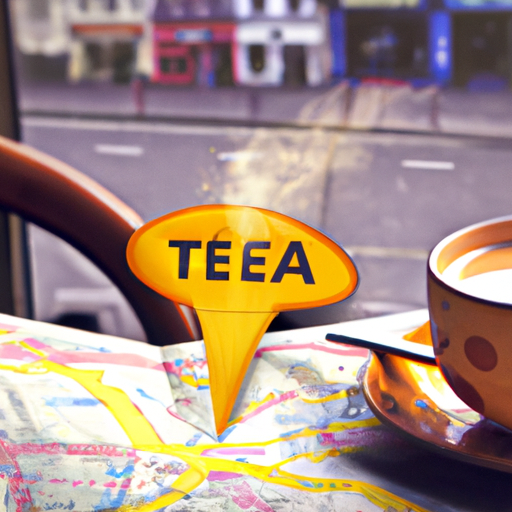
I absolutely adore chai tea, and I’m well aware that many share my sentiment. The combination of soothing spices and the smooth, creamy feel is simply irresistible. However, locating a quality chai spot nearby can often prove challenging. This is the reason I’ve compiled a guide to help you discover the finest chai spots in the area.
First up, cozy cafes are always a great option for finding delicious chai. These places tend to have a more relaxed atmosphere and often serve homemade pastries or snacks to go with your drink. Plus, they usually have comfy seating options like couches or armchairs that make it easy to settle in and enjoy your beverage. Some of my favorite cafes even offer different variations on classic chai recipes, like adding pumpkin spice or lavender syrup for an extra twist of flavor.
Key Takeaways
- Consider the spice and flavor profiles of chai from different regions, such as bold and spicy Indian chai with notes of cardamom and cinnamon.
- Look for cozy cafes, trendy coffee shops, authentic Indian restaurants, local tea houses, and farmers markets that offer unique variations on classic chai recipes and seasonal flavors.
- Factors like decor and environment, collaboration with artisans, and supporting local businesses can greatly elevate the overall chai experience.
- Chai is not only a delicious beverage but also has potential health benefits due to its rich antioxidant content, and can enhance the dining experience and pair well with desserts. Making chai at home is also a fun and easy DIY project to experiment with different spice and flavor profiles.
Cozy Cafes
You’ll feel right at home in these cozy cafes where you can warm up with a delicious chai tea. The ambiance is cozy, with comfortable seating that invites you to stay awhile. The staff are friendly and offer personalized service that makes you feel special.
One of my favorite cozy cafes is the Daily Grind. They serve a chai tea that is perfectly spiced and just the right temperature. The atmosphere is inviting, and the seating is comfortable with plenty of pillows to sink into. The staff are always welcoming and go out of their way to make sure your experience is enjoyable.
Another great option for a cozy cafe with amazing chai tea is Cafe Mocha. Their chai tea has a bold flavor that wakes up your taste buds while warming up your body on a chilly day. The ambiance inside feels like being in someone’s living room, and the seating options range from couches to armchairs making it an ideal place for relaxation or work.
When you’re looking for somewhere comfortable to relax or catch up on work, these cozy cafes are perfect choices for indulging in a delicious cup of chai tea. However, if you’re in the mood for something more trendy, check out our next section on trendy coffee shops!
Trendy Coffee Shops
I absolutely love exploring trendy coffee shops in my area. What draws me to these places are the specialty drinks that you can’t find anywhere else, like lavender lattes or matcha cappuccinos.
Along with the drinks, I also appreciate the unique blend selections that each coffee shop offers. And let’s not forget about the decor and environment – from minimalist designs to cozy seating areas, each place has its own vibe that adds to the overall experience.
Specialty Drinks
Looking for a unique and delicious beverage? Try out the specialty drinks at your local coffee shop or tea house! These establishments offer a wide variety of flavor combinations and brewing techniques that can satisfy any taste preference.
Some of the most popular specialty drinks include matcha lattes, spiced chai lattes, lavender honey lattes, and rose petal teas. Each drink has its own distinct flavor profile that is sure to please even the most discerning palate.
Additionally, many coffee shops and tea houses use high-quality ingredients in their specialty drinks, which can elevate the taste experience even further. So, if you’re looking for something new and exciting to try, explore your local coffee shops and tea houses for their selection of specialty beverages.
When it comes to finding the perfect cup of chai tea, unique blend selection is key. Many coffee shops and tea houses create their own signature blends by combining various spices like cinnamon, cardamom, ginger, clove, and black pepper with different types of tea such as black or green tea. These blends not only offer a one-of-a-kind taste but also provide potential health benefits from the various spices used.
So next time you’re on the hunt for a tasty cup of chai tea near you, consider checking out some local coffee shops or tea houses with their own blend selections!
Unique Blend Selection
Exploring the unique blend selection at local coffee shops and tea houses can be a delightful experience for any chai tea lover. From classic blends to innovative flavor combinations, there are endless possibilities waiting to be discovered.
Some of my favorite unique blend inspirations include lavender and honey, matcha chai, and spicy chocolate. Brewing techniques also play a crucial role in creating the perfect cup of chai. While some places may use a traditional stovetop method, others might opt for an espresso machine or even cold brew methods. Each brewing technique can enhance different aspects of the flavor profile, making each sip a new adventure.
Not to mention that certain spices used in chai blends have potential health benefits such as improving digestion and reducing inflammation. When it comes to finding the perfect spot to enjoy your next cup of chai, decor and environment can also play a significant factor in enhancing your experience.
Decor and Environment
Enhancing the ambiance and atmosphere of a chai tea establishment can greatly elevate the overall experience for customers. Decor inspiration can come from various sources, such as traditional Indian elements like intricate patterns and bright colors that reflect the culture’s vibrancy. However, it’s important to strike a balance between bold and subtle decor choices so as not to overwhelm customers.
For instance, incorporating plants or artwork on the walls can add a touch of nature and elegance without being too distracting. Ambiance tips also include lighting and music choices. Soft lighting can create a cozy and intimate atmosphere perfect for having conversations over a cup of chai tea.
Meanwhile, playing traditional Indian music in the background adds authenticity to the environment while also providing a relaxing backdrop for customers to enjoy their drinks in peace. As much as I love indulging in chai tea at any establishment with great ambiance, sometimes I crave more than just drinks. That’s why finding an authentic Indian restaurant nearby is always on my list of priorities when searching for places to get my fix of delicious cuisine.
Indian Restaurants
I absolutely love Indian cuisine, especially the chai tea that’s served in authentic restaurants. The rich spice and flavor profiles used in traditional chai recipes are simply amazing.
And the overall dining experience at an Indian restaurant is unlike any other, with its vibrant decor and welcoming atmosphere.
Authentic Chai Recipes
You can’t go wrong with trying out our authentic chai recipes for a truly soul-warming experience. Exploring traditional methods of brewing tea, our recipes include the perfect blend of spices and herbs that make each sip rich in flavor and aroma.
Whether you prefer it hot or cold, sweetened or unsweetened, there’s a recipe that suits your taste buds. But we’re not just about traditional methods here. We also offer modern twists to the classic chai recipe, giving it an exciting new dimension.
From adding a dash of turmeric for its health benefits to using almond milk instead of regular milk for a vegan option, we’ve got something for everyone. So why settle for store-bought chai when you can have an authentic homemade one that’s tailored to your preferences?
Speaking of preferences, let’s dive into the spice and flavor profiles next.
Spice and Flavor Profiles
After exploring authentic chai recipes, I’ve realized that the key to a delicious cup of chai lies in its spice and flavor profile. Each region has its own unique blend of spices that give their chai a distinct taste.
For instance, Indian chai typically includes ginger, cardamom, cinnamon, cloves, and black pepper. Meanwhile, Thai chai uses star anise as its primary spice. To better understand the different flavor profiles of chai from around the world, here are some descriptors to keep in mind:
- Indian Chai – bold and spicy with notes of cardamom and cinnamon
- Thai Chai – sweet and creamy with hints of star anise
- Masala Chai – rich and flavorful with a kick of ginger
- Moroccan Chai – warm and aromatic with a touch of orange blossom water
In addition to savoring the unique blend of spices in my cuppa, I also enjoy pairing my chai with desserts like baklava or shortbread cookies. The sweetness helps balance out the bold flavors in the tea.
As I continue on my quest to find where to get chai near me, I can’t help but daydream about enjoying this delicious beverage alongside delectable treats at a cozy cafe or restaurant.
Dining Experience
Imagine walking into a cozy restaurant with dim lighting and soft music, where the aroma of freshly brewed chai wafts through the air like a warm embrace on a chilly day. Creating ambiance is key to the ultimate dining experience, and nothing sets the mood quite like chai tea. The spicy notes of cinnamon, ginger, and cardamom pair perfectly with sweet desserts like baklava or carrot cake. But don’t be afraid to experiment with savory dishes as well – chai can add a unique depth of flavor to roasted meats and stews.
To fully appreciate all that chai has to offer, it’s important to find a restaurant that truly understands this ancient beverage. Below is a table showcasing some of my favorite places to grab a cup of chai in different regions across the United States:
| Location | Restaurant | Notes |
|---|---|---|
| New York City | Chai Spot | Offers vegan options |
| Los Angeles | Urth Caffé | Organic ingredients |
| Portland | Tea Bar | Serves nitro-chai |
Pairing your dessert or meal with an expertly crafted cup of chai can elevate your dining experience from average to exceptional. So why not try out one of these locations for yourself? You won’t regret it! And if you’re looking for even more options, check out some local tea houses in your area for an even wider selection.
Tea Houses
Looking for a cozy spot to enjoy some authentic chai tea? Check out the local tea houses in your area! These quaint little shops offer a variety of different tea blends and brewing techniques to satisfy even the pickiest of chai connoisseurs.
The atmosphere is warm and inviting, making it the perfect place to unwind with friends or curl up with a good book on a lazy afternoon. One of my favorite things about visiting tea houses is being able to try unique and creative twists on classic chai recipes.
Some shops offer seasonal flavors like pumpkin spice or gingerbread, while others may use locally sourced ingredients to give their brews a fresh, earthy taste. Plus, many tea houses also serve delicious snacks and pastries that pair perfectly with your cup of chai.
Overall, if you’re looking for an elevated dining experience that’s both relaxing and delicious, I highly recommend checking out your local tea houses. Not only are they great places to indulge in some amazing chai tea, but they’re also wonderful spots to support small businesses in your community.
And if you’re feeling adventurous, be sure to stop by some nearby farmers markets as well – who knows what other hidden gems you might find there!
Local Farmers Markets
I absolutely love going to local farmers markets! There’s just something about the fresh and organic ingredients that make everything taste so much better.
Plus, I feel good knowing that I’m supporting local businesses and the community atmosphere is always welcoming.
It’s a win-win situation all around, and I can’t wait to explore more of these markets near me!
Fresh and Organic Ingredients
With ingredients as fresh as a newly picked bouquet of flowers, you can find the perfect cup of organic chai tea at your local health food store. Using fresh and organic ingredients in chai tea not only enhances its flavor, but also provides numerous health benefits. Here are three reasons why I always choose to drink my chai made with fresh and organic ingredients:
-
It boosts my immune system: Freshly picked herbs and spices used in chai tea contain vital nutrients that can strengthen the immune system. Organic certification ensures that these ingredients are free from harmful pesticides, making them even healthier for me.
-
It tastes better: The taste of freshly ground cinnamon and cardamom cannot be compared to their stale counterparts. By choosing a cup of chai made with fresh ingredients, I’m treating myself to an explosion of flavors.
-
It supports sustainable agriculture: Buying organic products promotes sustainable agricultural practices and protects the environment by reducing the use of harmful chemicals.
Now that you know why using fresh and organic ingredients is important for your cup of chai, let’s talk about another reason to visit your local health food store – supporting local businesses.
Supporting Local Businesses
I absolutely love the taste and aroma of chai tea made with fresh and organic ingredients. It’s a comforting drink that I can enjoy any time of day, especially when I need a pick-me-up.
However, as much as I appreciate high-quality ingredients, I also value supporting local businesses. That’s why I make an effort to find chai tea that is not only delicious but also collaborates with artisans and supports fair trade.
When it comes to finding the best chai tea near me, I always prioritize supporting local businesses over big chains or franchises. By doing so, not only am I getting a unique and authentic experience, but I’m also helping my community thrive.
Collaborating with artisans means that the tea maker values traditional techniques and artistry in creating their product. Supporting fair trade ensures that everyone involved in the process of making the tea is treated fairly and ethically.
As someone who enjoys experiencing different cultures through food and drink, the community atmosphere is just as important to me as the quality of the product itself. That’s why finding a place where people can gather and share their love for chai tea is crucial in my search for the perfect cup.
Community Atmosphere
Imagine walking into a cozy café bustling with locals chatting over steaming cups of chai, enveloped in the warm and inviting community atmosphere. The smell of freshly brewed tea mixed with the aroma of baked goods fills the air, making you feel right at home.
Creating a welcoming environment is key to building a sense of community, and that’s exactly what local businesses excel at. Here are some ways local cafes help foster community:
- Providing a space for people to come together and connect
- Hosting events such as open mic nights or book clubs
- Using local ingredients and products, supporting other small businesses in the area
- Encouraging conversation between customers and staff
But where do you go when you can’t make it to your favorite neighborhood café? Look no further than online retailers who offer a wide variety of chai tea blends for delivery straight to your doorstep.
Online Retailers
You can easily find chai tea at online retailers like Amazon, where you can have it delivered straight to your doorstep. What’s great about shopping online is that you can compare prices from different sellers and choose the best deal for you. Some retailers even offer free shipping if you spend a certain amount.
Another advantage of ordering chai tea online is the variety of options available. You can find traditional loose leaf chai tea or pre-made tea bags in various flavors such as vanilla, cinnamon, and pumpkin spice. This allows you to try new brands and experiment with different tastes without having to leave your house.
However, keep in mind that some online retailers may have longer shipping times or may not ship to your area. It’s important to do your research before making a purchase and read reviews from other customers who have ordered from the same seller.
But overall, shopping for chai tea online is convenient and offers a lot of options. If online shopping isn’t for you, then consider checking out health food stores near you!
Health Food Stores
Explore the aisles of health food stores for a diverse range of chai tea options, including organic blends and unique flavor combinations. Not only can you find a delicious cup of chai, but you’ll also reap the benefits of its many health properties.
Chai is rich in antioxidants, which can help boost your immune system and fight off illness. Additionally, it contains anti-inflammatory properties that can ease joint pain and reduce inflammation throughout your body.
When shopping for chai at a health food store, keep an eye out for traditional chai making techniques. Many brands offer blends made with authentic Indian spices like cardamom, cinnamon, ginger, and cloves. These spices not only add a delicious flavor to your tea but also have their own unique health benefits.
For example, ginger has been shown to aid in digestion while cinnamon may help lower blood sugar levels. As much as I love exploring the aisles of health food stores for my favorite teas, sometimes nothing beats grabbing a warm cup from my favorite food truck or street vendor.
Transitioning into our next topic about these vendors, there are plenty of options out there if you’re looking for something quick and tasty on-the-go!
Food Trucks and Street Vendors
Finding a delicious and satisfying meal on-the-go is made easy with the abundance of food trucks and street vendors, which make up over 4% of the total U.S. restaurant industry according to IBISWorld.
In addition to tacos, burgers, and hot dogs, many food trucks and street vendors offer unique beverages such as chai tea. Here are a few reasons why I love getting my chai fix from these mobile businesses:
-
Food truck culture: There’s something special about ordering food from a truck or cart that’s been customized into a kitchen on wheels. It feels like you’re part of an underground community that values creativity and convenience.
-
Street vendor diversity: Depending on where you live, there may be a wide range of street vendors selling chai tea. From traditional Indian-style masala chai to trendy matcha lattes with spices like turmeric and ginger, you can find something to suit your taste buds.
-
Support local businesses: Many food trucks and street vendors are small businesses run by passionate entrepreneurs who take pride in their craft. By choosing to buy from them instead of chain coffee shops or fast-food restaurants, you’re supporting your local economy.
Now that I’ve satisfied my craving for some spicy-sweet tea, it’s time to move on to the next stop on my beverage tour: juice bars!
Juice Bars
Let’s take a break from the traditional coffee and tea shops and head over to juice bars for some refreshing and healthy beverages. Juice bars are becoming more popular these days, especially for those who want to live a healthier lifestyle. They offer not only juices but also smoothies, shots, and blends that are packed with nutritional value.
One thing I love about juice bars is their blend varieties. You can choose from different fruits and vegetables that suit your taste buds or health goals. If you’re feeling adventurous, you can even try their unique blends like kale-carrot-ginger or spinach-pineapple-mango! And if you’re not into greens, they have fruit-based blends like strawberry-banana or orange-mango.
Aside from their delicious flavors, juice bars are known for their nutritional value. Since the drinks are made fresh using whole fruits and vegetables, they retain most of their vitamins and minerals. Plus, some ingredients like ginger or turmeric have anti-inflammatory properties that may help reduce inflammation in the body.
Now that we’ve talked about the benefits of visiting a juice bar, let’s move on to making your own chai tea at home! It’s easier than you might think, and it’s a fun way to experiment with different spices and milk options.
DIY at Home
I absolutely love making chai tea at home! It’s not only a fun and easy DIY project, but it also allows you to experiment with different spice and flavor profiles. Personally, I enjoy adding a little extra ginger and cardamom to my recipe for an extra kick.
Nothing beats cozying up on the couch with a warm mug of homemade chai tea on a chilly night in.
Homemade Chai Recipes
You’re in luck, because whipping up a batch of homemade chai is as easy as pie! Not only will it save you money on buying pre-made chai tea, but it also allows you to experiment with different spice and flavor profiles. Here’s my go-to recipe for making a deliciously creamy and aromatic cup of chai:
| Ingredient | Amount |
|---|---|
| Water | 1 cup |
| Black tea leaves | 2 teaspoons |
| Cinnamon stick | 1 |
| Cardamom pods | 4 |
| Cloves | 3 |
| Ginger root (peeled and sliced) | 1 inch piece |
| Milk (or milk alternative) | ½ cup |
To start, bring water to a boil in a small pot and add the black tea leaves along with the cinnamon stick, cardamom pods, cloves, and ginger slices. Let all the ingredients steep together for about five minutes before adding in your choice of milk or milk alternative. Stir everything together until heated through, then strain the mixture into your favorite mug. Add sweetener if desired and enjoy!
Now that you know how to make your own homemade chai tea recipe at home, it’s time to experiment with different spice pairing and milk alternatives. In the next section, I’ll share some tips on discovering new flavor combinations so you can create your perfect cup of chai every time!
Experimenting with Spice and Flavor Profiles
Exploring various spice and flavor combinations can elevate your homemade chai recipe to new heights of sophistication, allowing you to savor the intricate aromas and tastes with each sip. Pairing chai with desserts is a popular option that can enhance the overall experience.
For example, pairing a spiced pumpkin tart with a warm cup of chai creates a delightful combination of flavors. Similarly, pairing chai with cinnamon rolls or apple pie can bring out the best in both.
When experimenting with traditional spice blends for your homemade chai recipe, it’s important to keep in mind the balance between sweetness and warmth. Adding too much cinnamon or cardamom can overpower the other ingredients and create an unbalanced taste.
Traditional blends like masala chai typically include ginger, cloves, cinnamon, cardamom, and black pepper. However, don’t be afraid to experiment with different ratios or even adding unique ingredients like star anise or fennel seeds for added complexity.
Now that we’ve explored ways to elevate our homemade chai game, let’s move on to enjoying a cozy night in without sacrificing comfort!
Enjoying a Cozy Night In
Ah, the joy of snuggling up in your favorite blanket, binge-watching your guilty pleasure show, and indulging in some comfort food – there’s nothing like a cozy night in! And what better way to enhance this experience than with a warm cup of chai tea? As someone who loves their tea, I’ve tried many different blends and flavors over the years. But there’s something about chai that just hits different on a chilly night.
To really elevate your cozy night in, it’s important to have all the right essentials. First and foremost, you’ll need a soft and cuddly blanket to wrap yourself up in. I personally love ones made from fleece or sherpa material for maximum coziness. Next up is finding the perfect movie or TV show to watch. Whether you’re into rom-coms or action flicks, having something entertaining to watch is key. And of course, no cozy night in is complete without some yummy snacks – think popcorn, chocolate-covered pretzels, or even a homemade charcuterie board. Add a steaming cup of chai tea into the mix and you’ve got yourself the ultimate recipe for relaxation.
| Cozy Blanket Essentials | Best Movies to Watch | Snack Ideas |
|---|---|---|
| Fleece or Sherpa Material | Romantic Comedies | Popcorn |
| Oversized for Maximum Cuddles | Classic Action Films | Chocolate-Covered Pretzels |
| Neutral Colors for Versatility | Feel-Good Dramas | Homemade Charcuterie Board |
In my opinion, it doesn’t get much better than curling up under a fluffy blanket with some delicious snacks and an amazing movie while sipping on a warm cup of chai tea. It’s truly one of life’s simplest pleasures that can bring so much joy and comfort into our lives – especially during these challenging times when we could all use a little extra coziness. So go ahead, treat yourself to a cozy night in and indulge in all your favorite things. You deserve it!
Frequently Asked Questions
What are the health benefits of chai tea?
Chai tea has numerous health benefits that make it a popular beverage for those who prioritize wellness and relaxation.
Chai tea is known to have anti-inflammatory properties due to the spices used in its preparation, such as cinnamon and ginger.
It can also boost digestion and metabolism, making it an excellent choice for those looking to improve their gut health.
The caffeine in chai tea can provide an energy boost while also promoting mental clarity and focus.
Additionally, the warm and comforting nature of chai tea makes it a great beverage for reducing stress levels and promoting feelings of calmness.
Overall, incorporating chai tea into your daily routine can be an easy way to promote both physical and mental wellbeing.
How is chai tea traditionally made?
Making chai tea is an art that requires the perfect balance of spices and brewing methods.
Traditionally, chai tea is made by boiling water with a spice blend of cinnamon sticks, cardamom pods, cloves, ginger root, and black peppercorns. Once the spices have infused into the water to create a strong brew, milk and sugar are added to taste.
The result is a creamy and aromatic beverage that warms you up from the inside out. Personally, I love making my own chai tea at home because I can control the strength of the spices and sweetness level to my liking.
It’s like creating a cozy hug in a mug on chilly days.
Are there any vegan or dairy-free options for chai tea?
As a chai tea enthusiast, I can confidently say that there are plenty of vegan alternatives and dairy-free options available for this beloved beverage.
Traditionally, chai is made with milk, but nowadays you can easily find non-dairy milk like almond, soy, coconut or oat as substitutes in cafes and supermarkets. Some even offer specialized vegan-friendly chai blends using spices like cinnamon, ginger, cloves and cardamom without any animal products or byproducts.
So don’t worry if you’re lactose intolerant or following a plant-based diet – there’s no need to miss out on the delicious taste of chai tea!
What are some popular variations of chai tea?
When it comes to popular variations of chai tea, there are two main types to consider: masala chai and chai latte.
Masala chai is the authentic version of chai that originates from India. It’s typically made with black tea, spices like cinnamon, cardamom, and ginger, and sweetened with honey or sugar.
On the other hand, a chai latte is a Westernized version that often uses a concentrate mixed with steamed milk and flavored syrups for added sweetness.
As someone who loves traditional Indian cuisine, I prefer masala chai over its Westernized counterpart because it offers a richer and more complex flavor profile. However, if you enjoy sweeter and creamier drinks, then a chai latte might be more up your alley.
Overall, both versions have their merits depending on personal taste preferences!
Can chai tea be made with alternative sweeteners, such as honey or agave?
Making chai tea with alternative sweeteners is not only possible, but it can also enhance the flavor profile of this aromatic beverage. Personally, I love using honey in my chai tea recipe as it adds a subtle sweetness that complements the spicy notes of the tea. Agave nectar is another great option for those who prefer a vegan alternative to honey.
In fact, there are countless recipes using chai tea that incorporate different natural sweeteners to cater to individual preferences and dietary restrictions. Additionally, some studies suggest that drinking chai tea may aid in weight loss due to its metabolism-boosting properties and potential appetite-suppressing effects.
So why not try experimenting with different sweeteners and see how you can elevate your own personal cup of chai while potentially benefiting your health goals?
Conclusion
So there you have it, my fellow chai tea lovers! I hope this guide has helped you discover new places to indulge in your favorite warm beverage.
Whether you’re in the mood for a cozy cafe or a trendy coffee shop, an Indian restaurant or a tea house, there are plenty of options out there to satisfy your cravings.
Personally, I love nothing more than sipping on a steaming cup of chai while surrounded by the sights and sounds of my favorite local farmers market. There’s something magical about immersing yourself in the hustle and bustle of a bustling outdoor market – all while enjoying the comforting flavors of spiced tea.
So next time you’re craving some chai, don’t hesitate to venture out and explore some new spots. Who knows what delicious surprises await?
-

 Turmeric Tea4 weeks ago
Turmeric Tea4 weeks agoWhat Teas Are Low In Oxalates
-
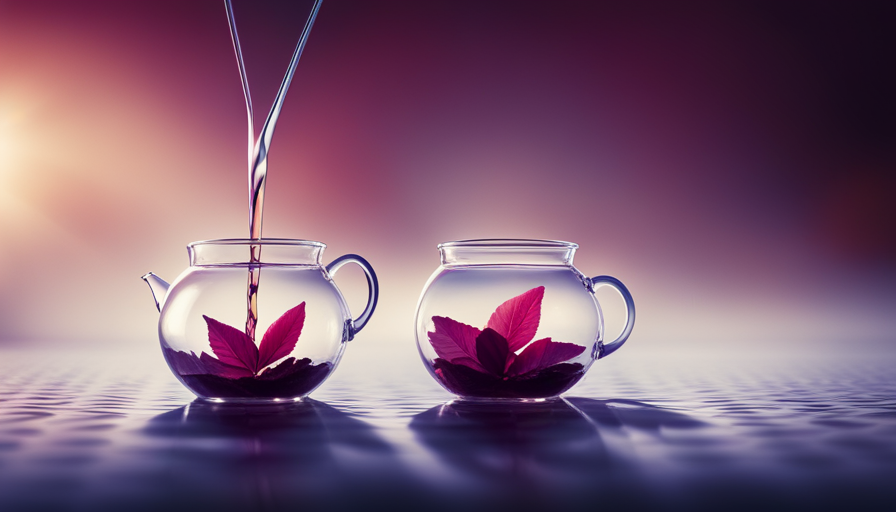
 Turmeric Tea4 weeks ago
Turmeric Tea4 weeks agoWhat Teas Have No Tannins
-

 Turmeric Tea3 months ago
Turmeric Tea3 months agoHow To Make Turmeric Tea With Powder
-

 Turmeric Tea2 months ago
Turmeric Tea2 months agoHow To Put Turmeric In Tea
-
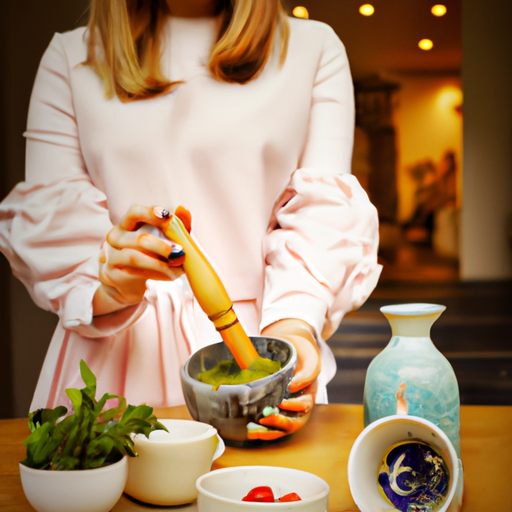
 Matcha Tea3 months ago
Matcha Tea3 months agoHow To Make Matcha Powder From Green Tea
-
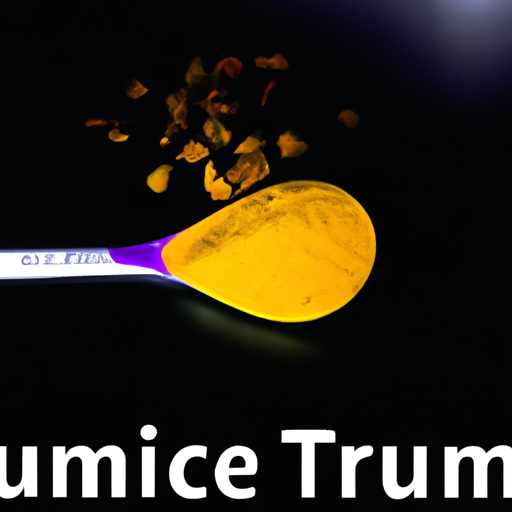
 Turmeric Tea2 months ago
Turmeric Tea2 months agoHow Much Is 500 Mg Of Turmeric In Teaspoons?
-

 Turmeric Tea3 months ago
Turmeric Tea3 months agoBrewing the Perfect Cup of Turmeric Tea
-
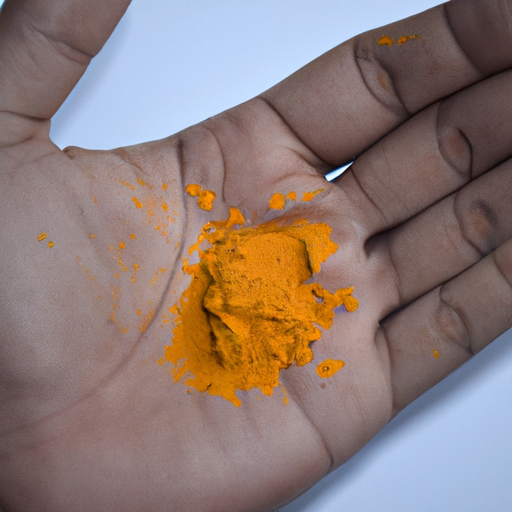
 Turmeric Tea2 months ago
Turmeric Tea2 months agoHow To Use Turmeric To Stop Periods






